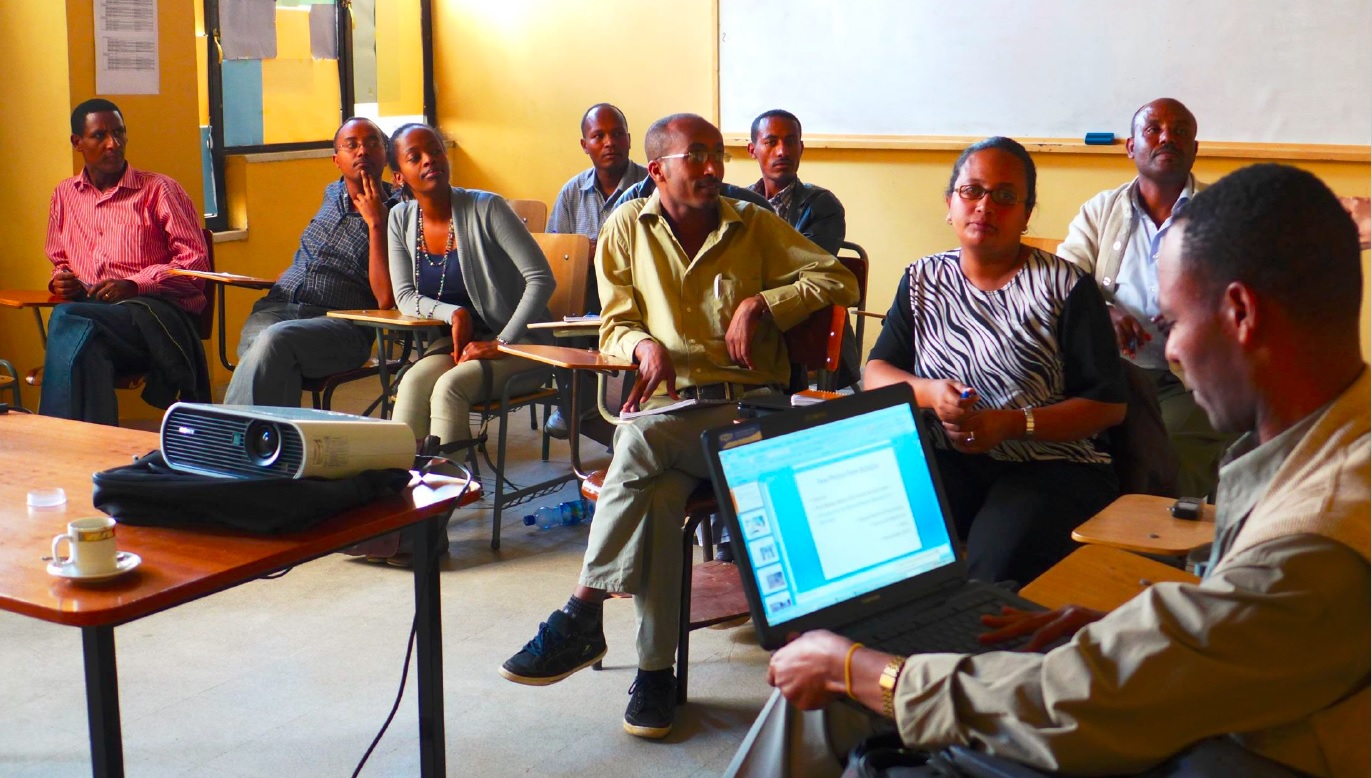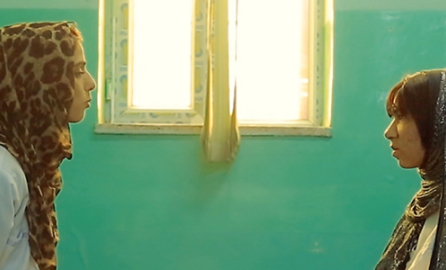Depression is the leading cause of disability worldwide, according to the WHO. Mental, neurological and substance use disorders make up 10% of the disease burden in low and lower-middle income countries, yet they respectively spend only between 0.5% and 1.9% of their health budget on treatment and prevention. On the ground, this translates into an average of one psychiatrist per 1.7 million people in low-income countries, and one psychiatric inpatient bed per 42,000 people.
Although development cooperation aims to reach the most vulnerable, this group too often falls through the cracks. “Mental health was not considered a top-10 killer in the world where the medical community is ready to invest money,” said Dr Cornelius Oepen, Cooperation Officer Health Sector in DEVCO, the European Commission’s Directorate General for International Cooperation and Development.
That is beginning to change. In 2011 the World Economic Forum found that untreated mental health problems, including depression and anxiety, will cost the global economy $16.1 trillion up to 2030. That’s based on losses to households when people can’t work; losses to employers when employees are less productive or absent; and costs to governments in higher health and welfare expenditures. “That’s where donors become sensitive, to the economic analysis,” said Dr Oepen. “But it may give donors the impulsion to invest more in mental health.”
Systems Approach - Emerald project
DEVCO sees mental health as an essential component of health policy, which should take into account all social determinants contributing to mental illnesses; and of a strong healthcare system, which should support those who have fallen ill. It is working to integrate mental health into primary healthcare in its support to partner countries. “Health policies should be more inclusive, and strategies should be developed to cover all populations in need,” said Dr Oepen.
A significant initiative in this area is the Emerald project, a five-year research project funded by the European Commission which comes to an end this year. It aims to identify barriers to mental health services in low and middle income countries, which often face the dual challenge of lower financial resources combined with a higher disease burden than high-income countries. It also seeks to trial solutions in six partner countries - Ethiopia, India, Nepal, Nigeria, South Africa and Uganda - which can be shared in similar contexts.
The project takes a systems approach, working at community, district and national level. On the ground, it trains health providers and clinical staff to recognise and treat mental health problems as part of primary healthcare. At national level, it works to convince policy-makers to make mental health a public health priority, by measuring its costs and demonstrating links with the broader development agenda.
 |
| Building capacity of local researchers - Credit: Emerald project |
“Mental ill health comes with a higher chance of becoming impoverished, through factors including loss of employment, stigma, and increased health expenditure,” said Dr Dan Chisholm, Programme Manager for Mental Health at the WHO, and Work Package leader on the Emerald project, at an Infopoint conference in Brussels. “At the same time, the social exclusion, poor living conditions and reduced access to services which come with poverty entrench those mental health problems.”
Natural disasters, disease outbreaks, violence, conflict and forced migration are also significant risk factors for mental health. “The effects are felt by the most vulnerable, which exacerbates inequalities,” said Dr Chisholm.
There are often dangerous spillovers into physical health conditions. Depression is a risk factor for serious illnesses including diabetes and cardiovascular disease. What’s more, people suffering from mental ill-health are less likely to get treatment for physical conditions; and when they do, it can hinder their adherence to treatment. A study found that HIV patients with depressive symptoms were 42% less likely to adhere to antiretroviral treatment than those without. The WHO estimates that patients with severe mental disorders lose 10-25 years of life expectancy.
The impact goes far beyond the individual sufferer. Mental health conditions can prevent other family members working or attending school, with inter-generational effects. And post-natal depression – which affects 15% of women around the world - can impact on infants’ cognitive development.
Development partners can help in two main ways. “The first thing to do is understand the problem, by identifying socioeconomic and environmental risks to mental health,” said Dr Chisholm. Investing in improved housing and access to basic amenities, education and job creation, and combating stigma and violence all contribute to improving mental health rates.
The second way is by “closing the treatment gap by scaling up person-centred, community-based services, and ensuring that the mentally ill are protected from the financial consequences of illness,” said Dr Chisholm. “Bringing together stakeholders from health, education, employment and the social sectors is crucial – they all have a role to play,” said Dr Chisholm.
Scaling up good practices
There are already examples of effective support for mental health in partner countries which have been running for several years, supported by EU Delegations. “You start with a good experience, show that it works, and then you get peer to peer learning and it spreads out,” said Dr Oepen.
In the following video, Dr Oepen outlines some of the good practices which can be built on, with examples from Rwanda and Afghanistan:
Another example of supporting mental health in a resource-poor context comes from Guinea. The West African country has a range of public health issues which contribute to an average life expectancy of 51 for men, 54 for women. Mental health is one area with a significant resource shortfall, all the more critical in the aftermath of the Ebola outbreak. A 2014 study found that there were only four trained psychiatrists in the country, and nine neurologists, for a population of 12 million.
In addition, there are poor links between those few specialized mental health services which are available and the general health service, and limited access to drugs for mental disorders. Patients or their families pay for medicines and the costs of hospital stays, according to an International Medical Corps analysis, as there are no government allowances for those living with mental health problems.
The EU Delegation has supported Fraternité Médicale Guinée, a civil society organisation, to support the integration of mental health care into primary healthcare services. It began with a pilot project in Conakry in 2000, and has since scaled up to include 12 healthcare centres.
The project is called SaMOA (Santé Mentale en Milieu Ouvert Africain, or mental health outreach in Africa) and works on three levels to address the huge unmet need for support for mental and neurological disorders.
At the medical level, the project trains healthcare professionals to identify mental health issues during general consultations, and overcome misconceptions about mental health. SaMOA also supplies treatment including neuroleptics and anti-epileptics, and helps improve the health system’s record keeping through information systems.
At a psycho-social level, SaMOA provides counselling and care, including support to regain lost jobs. And at a community level, the project trains community health workers who can in turn support the families of those suffering mental ill-health. The project found that this de-medicalizing of care improves both sustainability and effectiveness, and for the patients, it means reduced healthcare costs, better compliance to treatment, and better social integration.
Between 2000 and 2013, the project helped treat over 7,000 cases of mental and neurological disorders including depression, dementia, psychosis and epilepsy at primary healthcare level.
The starting point of very few [psychiatric] hospitalization services can be seen in a positive light, according to Dr Michel Dewez, a psychiatrist and promoter of the SaMOA project. “Mental illnesses, particularly serious mental illnesses, demand long-term initiatives. If there aren’t hospitals, that avoids the kind of extended institutionalization of the sort we saw in Europe at the beginning of the 20th century.”
“There are other places that exist which are used by families and patients,” said Dr Dewez, “for example there are healers whom patients can meet regularly over weeks or months. I’ve come across cases where, after a year or a year and a half, patients have improved in a way that’s quite astonishing.”
|
Opimo, and working with customs and beliefs around health One takeaway from the project is the importance of understanding and working with social customs and beliefs when trying to support a country’s healthcare system. “Often people suffering mental ill health were considered to be disturbing the public order, and the family would be held responsible,” said Dr Dewez. “Mental illnesses are also associated with the supernatural, which it is essential to grasp in order to work on these issues.” “I’m not sure that in psychiatry there are universal actions that are valid for everyone across all cultures, in the same way that aspirin works for everyone who has a fever,” said Dr Dewez. “It’s much more complicated, and it’s important to understand that symptoms for a patient in Guinea might not be the same as for a patient in Europe or elsewhere.” He gave the example of ‘Opimo’, an illness which can involve loss of self-esteem and sleep disorders, and which is treated by placing a particular vegetable on the soft spot of the skull. “It’s believed that if the vegetable is removed, the patient will die. Now, no one has ever died of Opimo, and I haven’t come across it outside Guinea. But that does not mean it should be disqualified on the pretext that it’s irrational,” said Dr Dewez. “It allows someone who is suffering from these symptoms – which, by the way, are like those we’d associate with depression – to express their suffering, and be considered.” “One can only speak of symptoms in the language in which they express themselves,” said Dr Dewez. “A language is not simply a means of communication, it is also a conception of the world. They are eminently linked. And this particularity, I think, must be taken into account, in order to be able to approach patients in their cultural context, so that our action is effective.”
|
Long term, wide-spread approach
“The good news is, it does not take so much to invest in mental health,” said Dr Oepen. “The relation between investment and benefit is a good one,” with every $1 invested in treating depression giving a $4 return in better health and ability to work, according to the WHO. “That’s besides the medical and human considerations that this is necessary to relieve people from suffering, and it’s a life-long suffering they are living with.”
“We are occupied on how international, bilateral and domestic funding can raise more money for health so that health issues are better dealt with,” said Dr Oepen. He stressed that taking a long-term approach, and one that is immune to slow results, is essential. “The most difficult part in international development is where there are no quick wins, where there are not these fast results that help you easily convince donors or private donors to invest. Now we are going for long term, and that is the challenge that we have to start now.”
The long-term, integrated framework of the Sustainable Development Goals is a constructive backdrop, bringing multiple stakeholders together around shared goals. “Mental health issues are linked to nearly all the development goals that are defined in the SDGs,” said Dr Oepen. “It’s linked to peace, people, poverty, let’s say to development in general.”
Banner image credit: Karshna Samadayar, European Commission






Log in with your EU Login account to post or comment on the platform.